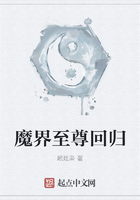The Princess kept her for a few minutes in sight, watched her long enough to feel her, by the mere betrayal of her pace and direction, driven in a kind of flight, and then understood for herself why the act of sitting still had become impossible to either of them. There came to her confusedly some echo of an ancient fable--some vision of Io goaded by the gadfly or of Ariadne roaming the lone sea-strand. It brought with it all the sense of her own intention and desire; she too might have been for the hour some far-off harassed heroine--only with a part to play for which she knew exactly no inspiring precedent. She knew but that all the while--all the while of her sitting there among the others without her--she had wanted to go straight to this detached member of the party and make somehow, for her support, the last demonstration. A pretext was all that was needful, and Maggie after another instant had found one.
She had caught a glimpse, before Mrs. Verver disappeared, of her carrying a book--made out, half-lost in the folds of her white dress, the dark cover of a volume that was to explain her purpose in case of her being met with surprise, and the mate of which precisely (308) now lay on Maggie's table.
The book was an old novel that the Princess had a couple of days before mentioned having brought down from Portland Place in the charming original form of its three volumes. Charlotte had hailed with a specious glitter of interest the opportunity to read it, and our young woman had therefore on the morrow directed her maid to carry it to Mrs. Verver's apartments.
She was afterwards to observe that this messenger, unintelligent or inadvertent, had removed but one of the volumes, which happened not to be the first.
Still possessed accordingly of the first while Charlotte, going out fantastically at such an hour to cultivate romance in an arbour, was helplessly armed with the second, Maggie prepared on the spot to sally forth with succour.
The right volume, with a parasol, was all she required--in addition, that is, to the bravery of her general idea. She passed again through the house unchallenged and emerged upon the terrace, which she followed, hugging the shade, with that consciousness of turning the tables on her friend which we have already noted. But so far as she went, after descending into the open and beginning to explore the grounds, Mrs. Verver had gone still further--with the increase of the oddity moreover of her having exchanged the protection of her room for these exposed and shining spaces. It was not, fortunately, however, at last, that by persisting in pursuit one did n't arrive at regions of admirable shade: this was presumably the asylum the poor wandering woman had had in view--several wide alleys in particular, of great length, densely overarched with the climbing (309) rose and the honeysuckle and converging in separate green vistas at a sort of umbrageous temple, an ancient rotunda, pillared and statued, niched and roofed, yet with its uncorrected antiquity, like that of everything else at Fawns, conscious hitherto of no violence from the present and no menace from the future. Charlotte had paused there in her frenzy or whatever it was to be called; the place was a conceivable retreat, and she was staring before her from the seat to which she appeared to have sunk all unwittingly as Maggie stopped at the beginning of one of the perspectives.
It was a repetition more than ever then of the evening on the terrace; the distance was too great to assure her she had been immediately seen, but the Princess waited with her intention as Charlotte on the other occasion had waited--allowing, oh allowing, for the difference of the intention!
Maggie was full of the sense of THAT--so full that it made her impatient; whereupon she moved forward a little, placing herself in range of the eyes that had been looking off elsewhere, but that she had suddenly called to recognition. Charlotte, who had evidently not dreamed of being followed, instinctively, with her pale stare, stiffened herself for protest. Maggie could make that out--as well as, further, however, that her second impression of her friend's approach had an instant effect on her attitude. The Princess came nearer, gravely and in silence, but fairly paused again to give her time for whatever she would. Whatever she would, whatever she could, was what Maggie wanted--wanting above all to make it as easy for her as the case permitted. That was not what Charlotte had wanted (310) the other night, but this never mattered--the great thing was to allow her, was fairly to produce in her, the sense of highly choosing. At first, clearly, she had been frightened; she had n't been pursued, it had quickly struck her, without some design on the part of her pursuer, and what might n't she be thinking of in addition but the way she had, when herself the pursuer, made her stepdaughter take in her spirit and her purpose? It had sunk into Maggie at the time, that hard insistence, and Mrs. Verver had felt it and seen it and heard it sink; which wonderful remembrance of pressure successfully applied had naturally till now remained with her. But her stare was like a projected fear that the buried treasure so dishonestly come by, for which her companion's still countenance at the hour and afterwards had consented to serve as the deep soil, might have worked up again to the surface, might be thrown back upon her hands. Yes, it was positive that during one of these minutes the Princess had the vision of her particular alarm. "It's her lie, it's her lie that has mortally disagreed with her; she can keep down no longer her rebellion at it, and she has come to retract it, to disown it and denounce it--to give me full in my face the truth instead."















